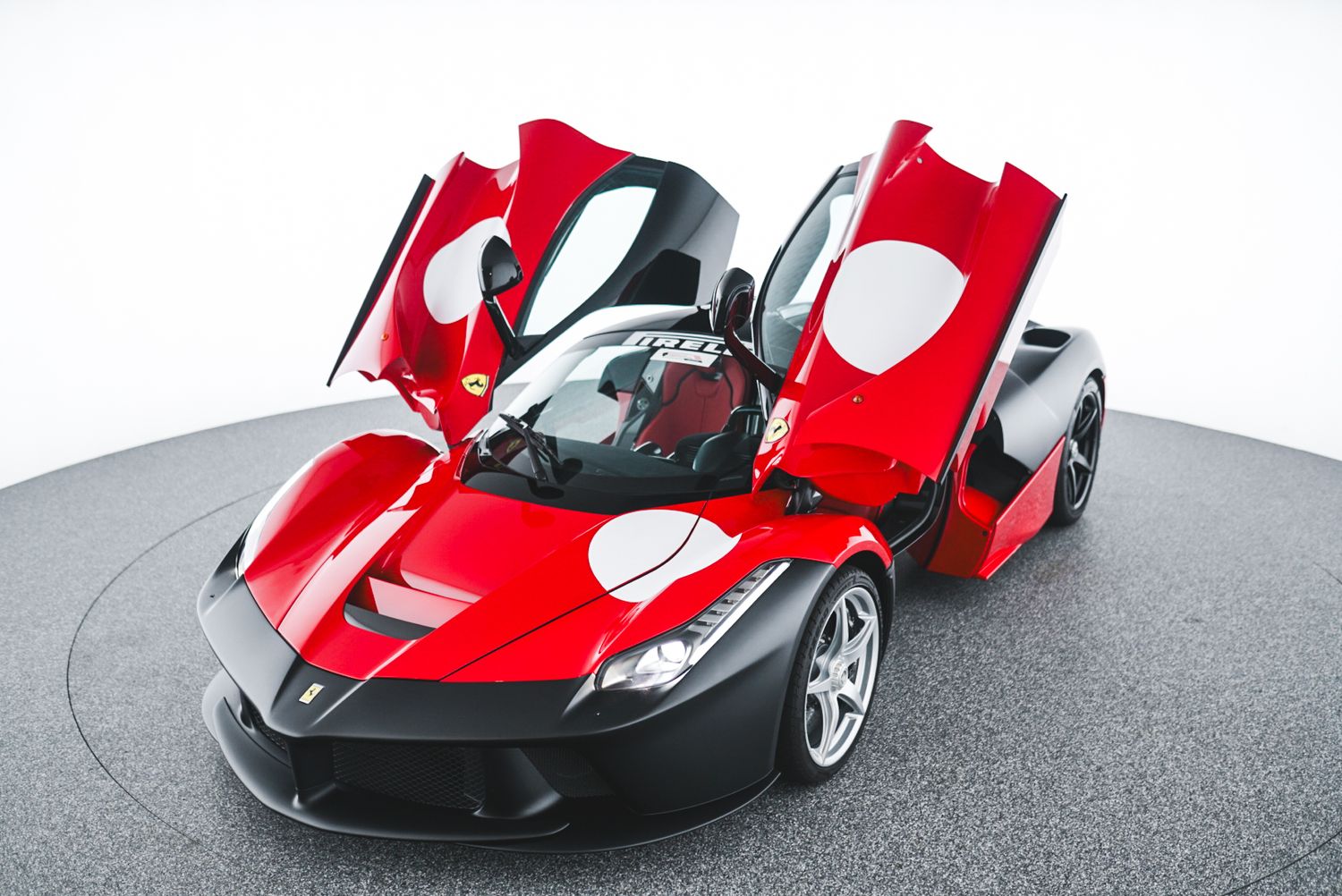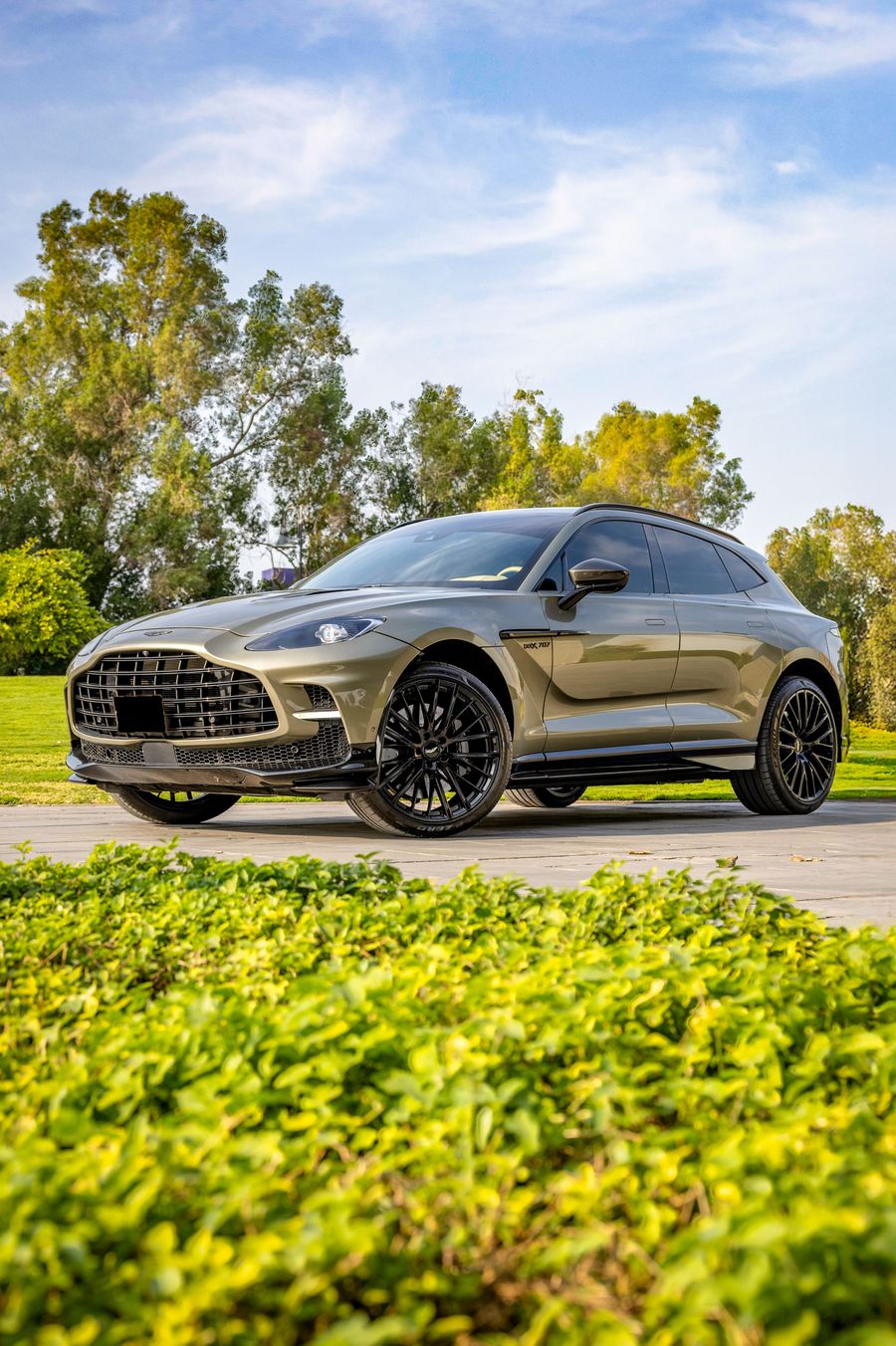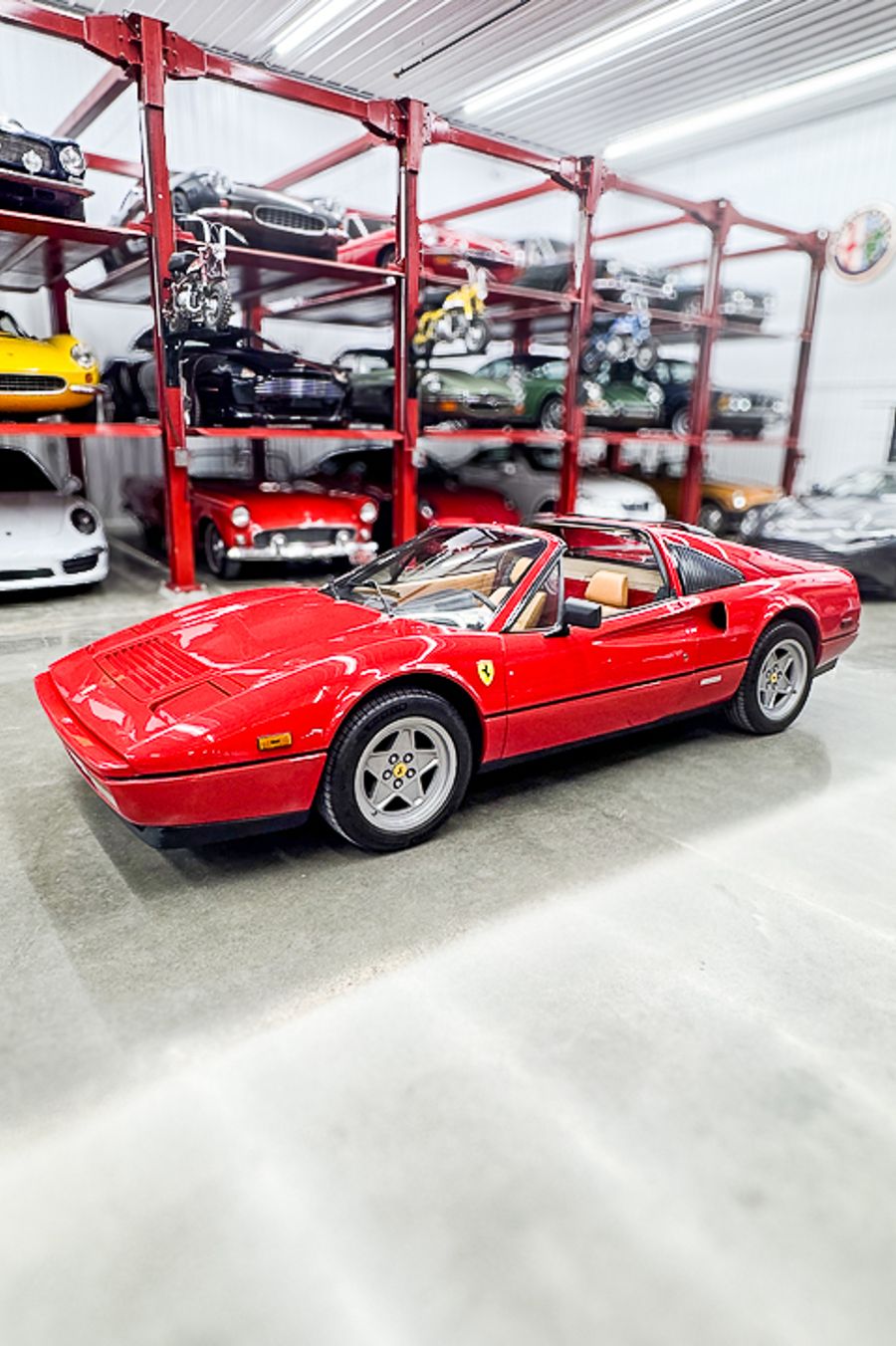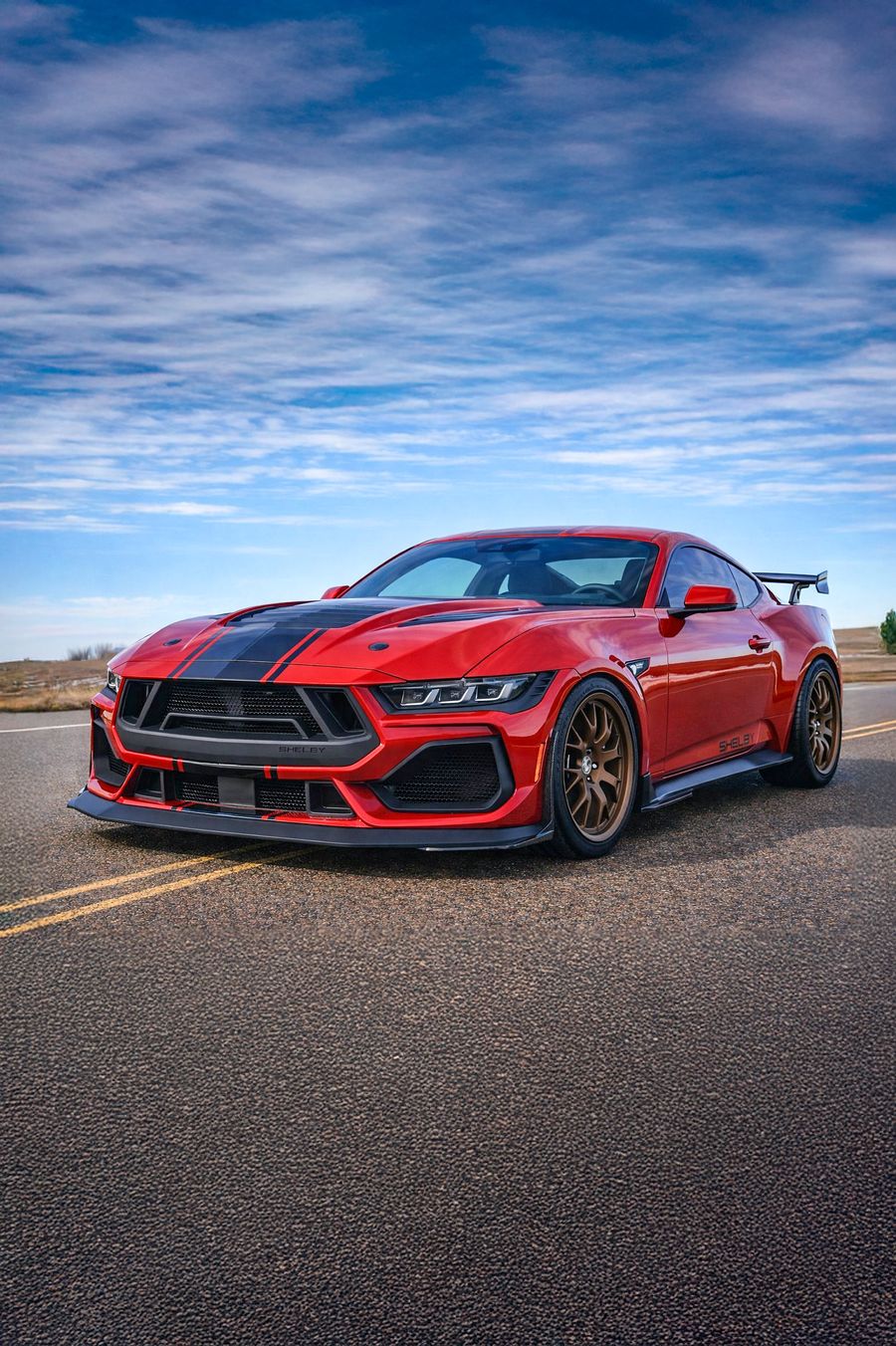- Unsold -
- Ended 24 April at 7:43 PM
- Unsold -
- Ended 24 April at 7:43 PM
Overview
Offered for sale is this 2014 Ferrari LaFerrari prototype.
This example is Ferrari's LaFerrari Prototype PS1. It is the third and final LaFerrari factory prototype, also known as "third phase", with both the cosmetic and mechanical equipment identical to the production car - worthy of museum status in any thorough Ferrari collection. A s a third-phase pre-series illustrator, it is finished in Ferrari’s signature Rosso Corsa and Matte Black over a red leather interior. It is powered by the definitive 6.3 liter Type F140FE V12 engine with prototype ancillaries and components, supplemented by Ferrari’s definitive pre-production HY-KERS hybrid powertrain system. Producing 789 hp, power is sent to the rear wheels through a seven-speed dual-clutch automatic transmission. Accredited with Ferrari Classiche Certification, PS1 is being sold on a bill of sale. PS1 is not road-legal, therefore, it cannot be registered for use on public roads and is currently speed limited to about 30mph.
Company president Luca Di Montezemolo described the LaFerrari, translated as ‘The Ferrari,’ as “the expression of what defines our company,” during its introduction at the 2013 Geneva Motor Show. Two variants of the mid-engine, mild-hybrid sports car were sold: the coupe, with 500 produced from 2013 to 2016, and the Aperta convertible, with 210 built from 2016 to 2018. As expected, demand was huge and limited supply promoted fierce competition among hopeful buyers for LaFerrari production slots.
Masterfully crafted by Ferrari engineers throughout the process of bringing the LaFerrari from concept to reality, prototypes are far rarer, with just a handful offered up to Ferrari’s most faithful followers, including this 2014 Ferrari LaFerrari Prototype PS1. Combining Ferrari’s race-winning technical prowess and stunning performance credentials, the LaFerrari’s beautiful, F1-influenced body styling and purposeful, driver-oriented luxury inside are enough to please even the most discerning of buyers. Built around a competition-worthy, arrowhead-shaped, carbon-fiber tub main structure, the LaFerrari features a lower ride height and center of gravity than even the radical Enzo before it.
Following in the footsteps of the lineage of halo cars like the 288 GTO, the F40, F50, and Enzo, the LaFerrari had big shoes to fill. Add to that competition at the time from Porsche and McLaren with the 918 and P1 – the LaFerrari had much to prove.
But the real talking point of the LaFerrari has always been the advancements it brought to Ferrari’s hybrid technology. At the heart of it lies a longitudinally rear mid-mounted 6.3-liter V12, which produces 789 hp at 9,000 rpm and 516 lb-ft of torque at 6,750 rpm, and even comes equipped with F1-derived variable intakes and an adaptive oil pump, which measures g-forces.
The LaFerrari changed the game and made you question everything you knew about supercar engines. The naturally-aspirated V12 in the LaFerrari needs no turbos to make it go and is a much better car for it. The hypercar race for superiority was well and truly on with Porsche and McLaren, and some could have through a turbocharger or two missing as a disadvantage. But power delivery of this V12 is like nothing else, and pushing the rev counter to its 9,250 rpm limit is nothing short of motoring perfection.
To assist the LaFerrari’s low-down torque delivery, Ferrari incorporated its first-ever hybrid-electric system, and in true Ferrari fashion, this system offers no eco-mode and delivers maximum power at all times. Ferrari calls its hybrid system KERS, or kinetic energy recovery system, the same type of system used in the period Formula One car. When activated, the system boosts power outputs to an unapologetic 950 hp and 664 lb-ft of torque.
The hybrid system is composed of two electric motors developed in collaboration with Magneti Marelli – one powering the driven wheels and the second the ancillaries – and a battery pack attached to the floor of the chassis consisting of cells that were assembled in the Scuderia Ferrari department, the same responsible for F1 development.
Ferrari proclaimed hybrid systems were the future for the brand, and they were right. The LaFerrari was a trailblazer with the current Ferrari flagship - the SF90 - owing its even stronger, now plug-in hybrid composition, solely to the success of the LaFerrari.
Fast forward just over a decade since its introduction, and the LaFerrari continues to reign as Ferrari’s most advanced road model of all time. Serving as the link in the LaFerrari program from development to production reality, PS1 provides a truly rare and fascinating insight into new-car design and development at Ferrari. One of the final strokes of the engineering masterpiece that is the LaFerrari, PS1 offers an amazing opportunity to experience and appreciate the engineering prowess and incomparable artistry that continues to define the LaFerrari mystique.
Internally designated the "F150 Prototipe Preserie PS1", the body of PS1 is based upon Ferrari’s definitive, competition-style carbon fiber chassis and central ‘tub’ structure. PS1 features the definitive pre-production suite of active aerodynamic systems with prototype parts. Staggered 19-inch front and 20-inch rear wheels are wrapped in Pirelli P-Zero extreme-performance tires.
Although this third-phase, or ‘third family,’ LaFerrari pre-series illustrator prototype is visually identical to the final, production-ready vehicles, it benefits from several unique elements including:
- Rosso Corsa and Matte Black paint
- White vinyl roundels and Pirelli graphics
Interior features include:
- Red leather seats with black piping
- Carbon fiber dash and console accents




